|
Not only are kids unique in their gifts and challenges, but they may also need different educational options at different points in their growing up years. When parents have many options to choose from, they’re more likely to find schools and resources to help their kids achieve their goals. That was certainly the case for Makila Carter. When Makila was a 15-year-old sophomore in Madison, Wisconsin, her father passed away from lung cancer. At the time, she was attending a huge school (there were 1500 students in her freshman class). Makila said, “I had become dissociated from everyone and everything because I was just expected to go back to [a] huge school with thousands of other kids and present as if everything was ok in my life. No one asked if I was ok. My teachers weren’t engaging. Everyone just thought I had missed a lot of school that current semester and probably wouldn’t catch up. I came home that day and I told my mom that if I had to go back there I didn’t know what I would do.” Makila’s interest in learning was dwindling quickly. Fortunately, Makila’s mother knew about a school that fit her daughter’s current needs: Shabazz City High School. Makila’s mother had been a student at Shabazz in the 60’s, and she thought it would be just the thing to rekindle Makila’s interest in life and learning. One of the things Makila loved about Shabazz was that she had to apply, interview, and be accepted to the school. “If you were a bad apple or didn’t want to learn they didn’t want you there. Loved that,” she said. “Every kid that was there was there because they wanted to be and we were all in this together to make it through high school with the necessary tools to become high-functioning adults. A lot of my former classmates went to 4-year colleges and universities.” It sounds great, but what what makes Malcolm Shabazz City High School so different from the school Makila previously attended? For one, Shabazz is much, much smaller. The school currently has 135 students. Its website says, “Shabazz is a choice alternative school. All of its 135 students choose to attend Shabazz--no one is forced to go to Shabazz.” When asked to describe Shabazz, Makila said that it made her feel happy. “We were equals to the teachers, they allowed us to call them by their first names. A lot of the teachers who were there had been there for many years. My history teacher Jeff (his last name escapes me) was a student teacher when my mom was a student there. My mother spoke of him fondly. He remembered her too. They taught us in a way to make everything relevant.”
Unconventional teaching and hands-on learning are several of the hallmarks of Shabazz. Makila said, “We had a history class called the Life and Times of Bob Dylan. History class was started every day with a song from Dylan and we would have to try and decode the song and pair it to what was happening in that moment in time. Everything was outside of the box. There was another teacher who taught women’s history classes. Classes often started or ended with a debate. Everyone took a lot of notes, but it was because the teachers cared enough to give a different way to teach.” On Malcolm Shabazz City High School’s student-created website, you can read about Shabazz/Community Service-Learning Partnerships. These are service projects that Shabazz students and staff work on to help their community. They include art projects, poetry guilds, journalism projects with Wisconsin Public Radio, games with elementary students, trail repair for the local arboretum, voter registration canvassing, and rebuilding computers for families who can’t afford to purchase one on their own. Makila said, “I took a cinematography class and an elective class where I learned to build computers and we would fix the computers in the school.” This kind of hands-on, real-world experience instills confidence in students and helps them to discover skills and interests they didn’t know they had. When asked about how her life would be different now if her mother hadn’t exercised her right to choose her school, Makila said, “I don’t want to think about where I would be. It wouldn’t have ended well for me if I didn’t find a place to feel safe like I did at Shabazz. My mother, who went to the same school decades earlier, probably wouldn’t have completed school either.” Makila noted that Shabazz is arts-based, and she is artistic herself. That’s part of what made it such a great fit for her. “Not every child learns the same way,” she said. “Everything we did was linked to some type of artistic outlet. I feel like that helped us absorb more.” Is Shabazz City High School the best place for every student to attend high school? Of course not. Other students have different interests, learning styles, and desires. But it was a perfect fit for Makila and her classmates. When a variety of schools are available, more students will find a place that feels like home, and more students will find success like Makila Carter did. Many thanks to Makila for the interview and her insight into educational opportunity.
0 Comments
Last week, the Nebraska Commission for the Deaf and Hard of Hearing issued a press release in which they question comments made in the wake of a visit from the U.S. Secretary of Education. In particular, the press release quotes LPS superintendent Steve Joel as saying, "Nebraska is a choice state. Students can attend any school they want to -- and do."
The NCDHH knows this isn't true. Members of the task force have attended IEP meetings in which parents with children who are deaf or hard of hearing have requested to send their children to a residential school setting at the Iowa School for the Deaf, and they've been told they can't go. In fact, according to the press release, these parents have been "told to utilize the Individuals with Disabilities Act appeals process in an attempt to convince education officials that a residential school setting, or a different school of their choice, is best for their child." The press release asks the question, "If parents have to utilize the due process appeal system to obtain the same right of 'school choice' as children without disabilities, is that true 'choice' after all?" Why don't these parents request to send their children to a school for the deaf or hard of hearing right here in Nebraska? The Nebraska School for the Deaf closed in the 90's, and nothing has replaced it. If a family with a deaf or hard of hearing child lived in St. Paul, the child could attend Metro Deaf School, a free public charter school providing a bilingual and interdisciplinary curriculum. Parents living in Florida could use a tax-credit scholarship to send their deaf or hard of hearing child to Blossom Montessori School for the Deaf, a private school that uses a combination of Montessori-style teaching and visually oriented curriculum. Parents in Arizona can use an ESA (Education Savings Account) to pay for tuition for schools for the deaf or hard or hearing as well as for private tutors, therapies, and other services their children need. So it's no wonder that parents are leaving Nebraska in order to access the educational resources their children need. Children in Nebraska do not have access to any of the opportunities mentioned above, and that's why Nebraska is ranked #50 in the Parent Power Index. Until this upcoming session, Nebraska legislators have not even been willing to discuss expanding educational opportunity for children in this state. Instead, education reform bills have been stopped in committee by senators who are beholden to the teachers union, district administrators, Nebraska Loves Public Schools, Stand for Schools, and other organizations that are more concerned about maintaining control over systems than they are about providing opportunities for individual children to succeed. The NCDHH is a state agency with 13 employees and 9 board members. They have offices in Lincoln, Omaha, North Platte, and other locations. They hear the stories of children across the state, and they know what they're talking about. In their recent press release, the NCDHH board states that parents have been denied requests to send their children to the Iowa School for the Deaf because "their current school provides a better choice." This attitude that administrators know better than parents is the reason families are leaving Nebraska in search of freedom and better opportunities for their children. Nebraska legislators have a chance this upcoming session to offer meaningful opportunities for the parents and children of this state. They can approve LB295, a measure that would offer tax credits to individuals or organizations that contribute to K-12 scholarship funds. With a scholarship, perhaps some of these parents referenced by the NCDHH could afford to send their children to schools that offer the opportunities they're looking for. NCDHH Board Chairman and retired educator at the New Mexico School for the Deaf Margie Propp said, "It is time for the deaf or hard of hearing children to have the same right to choose a school the same as their hearing peers." FOR IMMEDIATE RELEASE: October 10, 2017
CONTACT: John Rich, [email protected] AFP-NE Reacts To Disappointing NeSA Results, Calls For Reform Organization Calls Out Commissioner Blomstedt for Friday Afternoon Release Lincoln, NE – Americans for Prosperity (AFP) - Nebraska has renewed its call for more education opportunities in Nebraska after the Education Commissioner, Dr. Matt Blomstedt, and the Nebraska Department of Education (NDE) released shocking data about the state of education in Nebraska. The 2017 Nebraska State Assessment preliminary results, which were released on a Friday before a holiday weekend in an attempt to bury the disappointing news, indicated barely half of Nebraska's 3rd through 8th grade students are proficient in English Language Arts. It is also not clear where, or if, the NDE has posted the preliminary results since the press conference. “These disappointing results should serve as a wake-up call to all Nebraskans on the state of our education system," said AFP-Nebraska State Director Matt Litt. "Not even a month ago Commissioner Blomstedt told the media that Nebraska is close to having the greatest education system in the world. By releasing this information on a Friday afternoon before a holiday weekend, it's clear the Commissioner sought to stall that discussion instead of promote an honest dialogue about the quality of education provided in Nebraska." Litt continued, "In light of Friday's data dump, Nebraskans want to know how we ensure our kids improve. Maintaining the status quo and spending more money will not work - other states have tried unsuccessfully. We need to implement reforms and expand education opportunity." Litt concluded, “AFP will continue calling on the Nebraska Legislature to prioritize the Nebraska Reading Improvement Act and to implement a school grading system so families know if they are at a high-quality school. We’ll also continue our call for expanding education opportunities for all Nebraska students.” Background: Last month, Education Secretary Betsy DeVos toured four schools throughout Nebraska on her “Rethink School” tour. In a press conference following the visit, Dr. Bloomstedt remarked Nebraska already had one of the greatest education systems in the world (approximately 9:45 min. mark). For further information or an interview, reach Matt Litt at [email protected] Americans for Prosperity (AFP) exists to recruit, educate, and mobilize citizens in support of the policies and goals of a free society at the local, state, and federal level, helping every American live their dream – especially the least fortunate. AFP has more than 3.2 million activists across the nation, a local infrastructure that includes 36 state chapters, and has received financial support from more than 100,000 Americans in all 50 states. For more information, visit www.AmericansForProsperity.org ### |
|
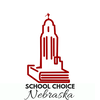
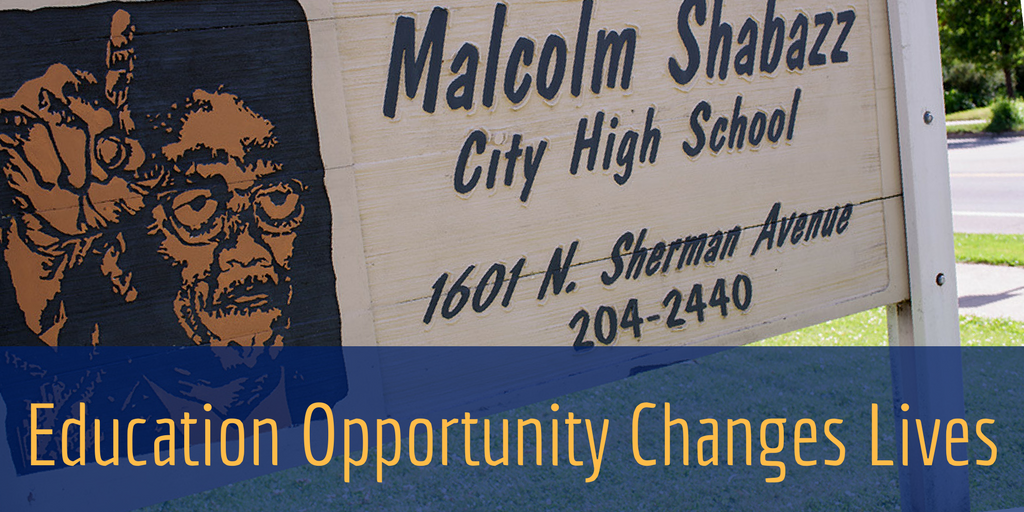

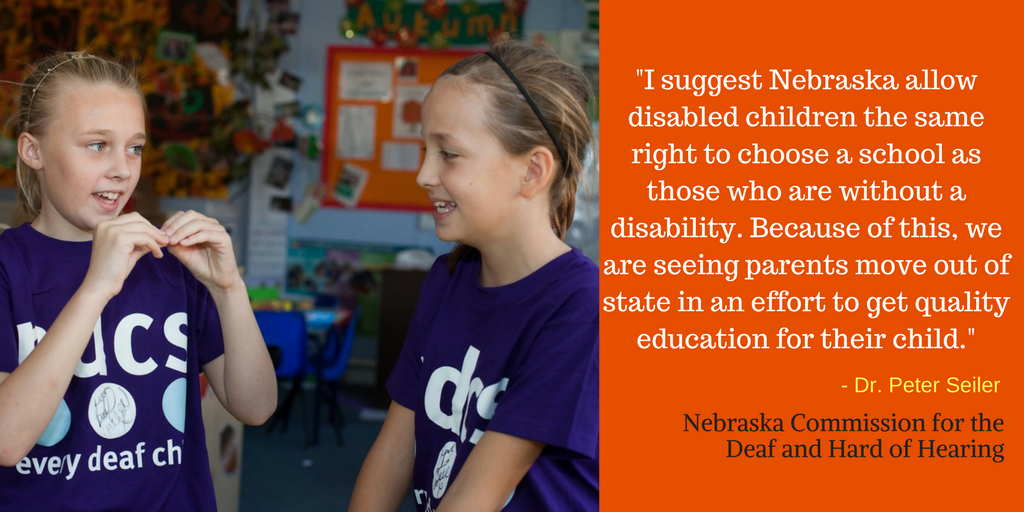
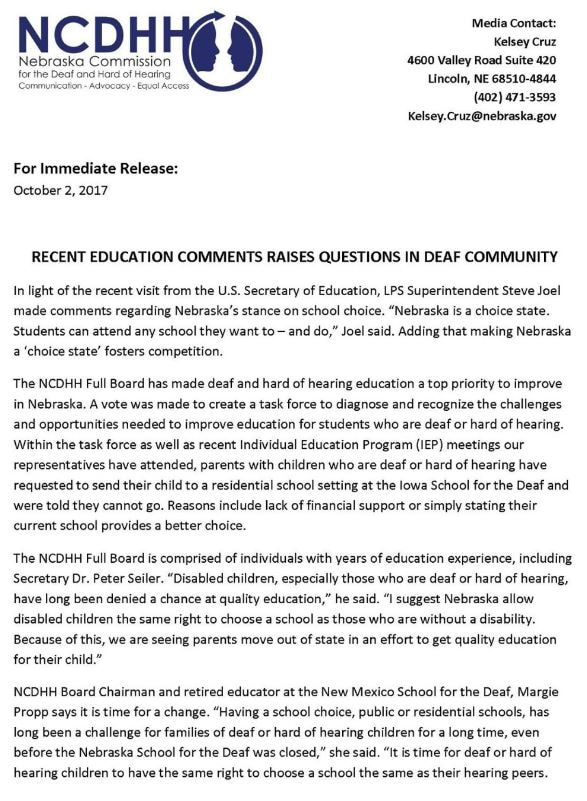
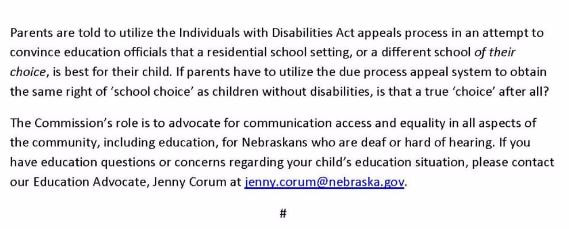

 RSS Feed
RSS Feed